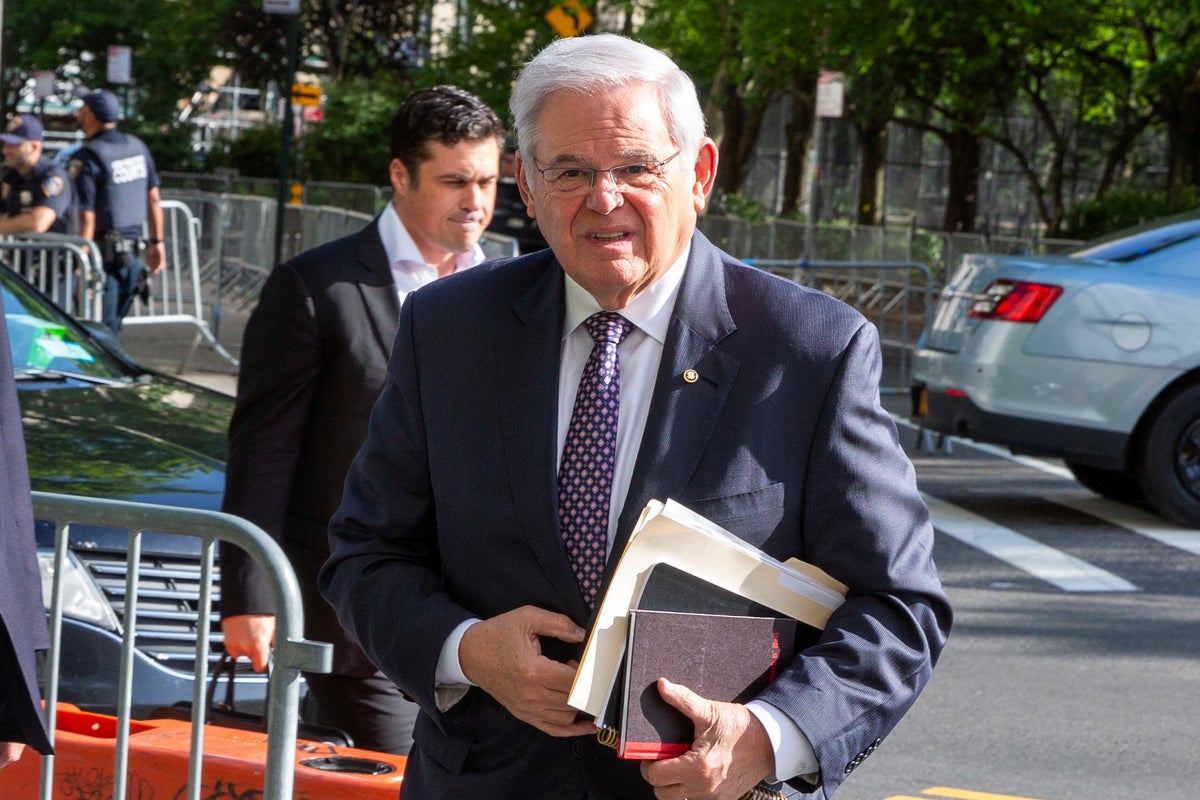
Embattled New Jersey Senator Robert Menendez has officially filed paperwork to appear on the November general election ballot as an independent, weeks after the veteran Democrat lost a primary challenge amid an ongoing corruption scandal.
Menendez collected the 800 signatures required to support his candidacy as an independent against a Republican nominee and the man who bested him in the Democratic primary, Representative Andy Kim, according to reports.
Menendez actually collected more than 2,000 signatures, according to the New Jersey Globe, which will be delivered to the New Jersey state Division of Elections in Trenton.
He is unable to deliver them personally because he is currently required to attend his trial in the Southern District of New York. Menendez is fighting bribery and other corruption-related charges, including allegations that he unlawfully operated as a foreign agent of the Egyptian and Qatari governments while serving as chair or ranking member of the Senate’s foreign relations committee.
The indictment against him was unsealed in September last year. It alleges that he accepted bribes in trade for influencing US policy to benefit Egypt and Qatar and provided “sensitive US government information” to Egypt.
FBI agents who searched the senator’s home in 2022 found more than $400,000 worth of gold bars and large sums of cash hidden among his belongings. Menendez’ wife, Nadine, and two New Jersey businessmen also face charges over the alleged scheme.
The senator’s trial is expected to continue through the end of this month, and he has until August 16 to decide whether he wants to go through with the election campaign or pull his name from consideration.
Kim, a popular House Democrat who gained a measure of prominence after he was photographed cleaning up debris from the January 6 attack on the Capitol, has warned that Menendez’s independent bid could split the Democratic vote and hand the seat to the GOP.
But it is understood that Menendez’s decision to get into the race is driven less by a desire to retain his senate seat as it is by a quirk in federal campaign finance law that lets him raise money for his legal defense.







